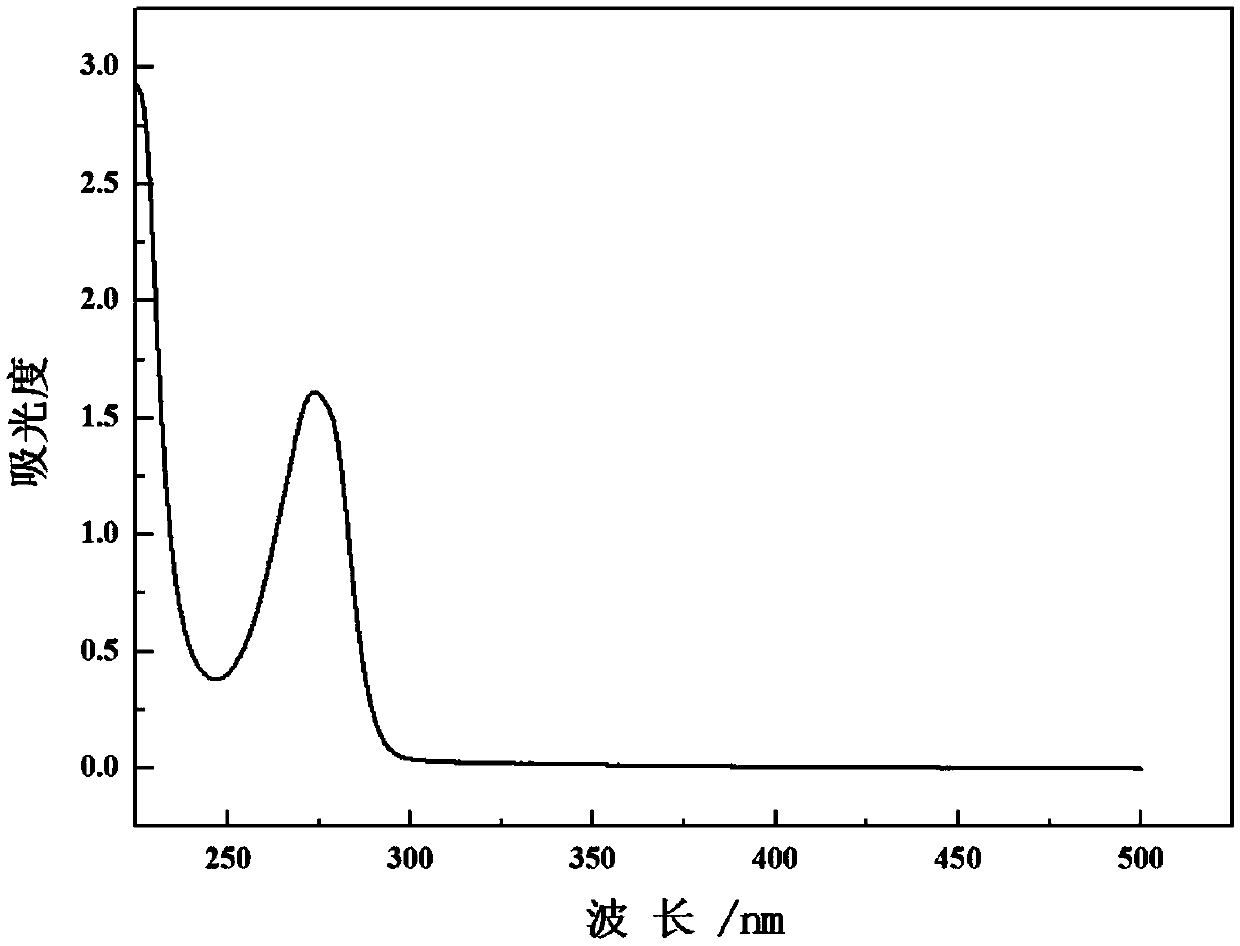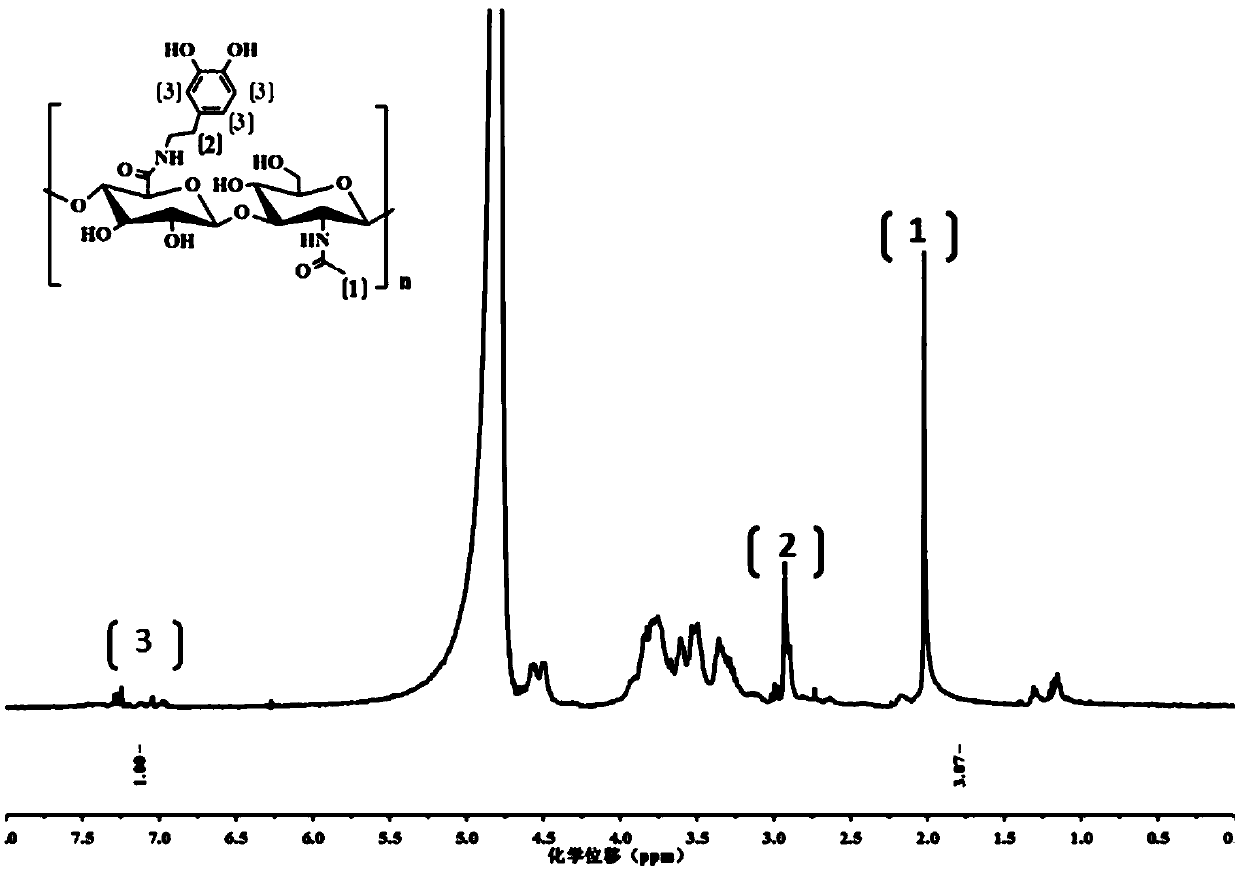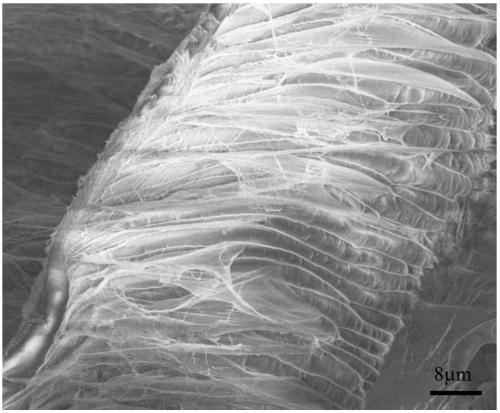Method for improving adhesion property of polyacrylamide hydrogel, and resulting polyacrylamide hydrogel
A technology of polyacrylamide and acrylamide, which is applied in the field of biomedical materials and can solve problems such as lack of adhesion properties
- Summary
- Abstract
- Description
- Claims
- Application Information
AI Technical Summary
Problems solved by technology
Method used
Image
Examples
Embodiment 1
[0062] Prepare 0.01mol / L PBS buffer solution (1L)
[0063] Add 800mL of deionized water, 7.9g of sodium chloride, 0.2g of potassium chloride, 0.24g of potassium dihydrogen phosphate and 1.8g of dipotassium hydrogen phosphate into a 1L volumetric flask in sequence, and dissolve with magnetic stirring at room temperature. Adjust the pH of the solution to 7.2-7.4 with HCl, and finally add distilled water to make it up to 1L to obtain a 0.01mol / L PBS buffer solution. After the solution is prepared, store it in a refrigerator at 4°C.
[0064] Preparation of dopamine-modified sodium hyaluronate (HAC)
[0065] 1. At room temperature, weigh 1g of sodium hyaluronate, put it into a three-necked flask, then add 100mL of 1mol / L PBS buffer solution and a suitable magnet, stir until it is completely dissolved, adjust the pH of the solution to 5, and then Add catalyst 0.476g of 1-(3-dimethylaminopropyl)-3-ethylcarbodiimide (EDC) and 0.286g of N-hydroxysuccinimide (NHS), fully stir and disso...
PUM
| Property | Measurement | Unit |
|---|---|---|
| Adhesive strength | aaaaa | aaaaa |
Abstract
Description
Claims
Application Information
 Login to View More
Login to View More - R&D
- Intellectual Property
- Life Sciences
- Materials
- Tech Scout
- Unparalleled Data Quality
- Higher Quality Content
- 60% Fewer Hallucinations
Browse by: Latest US Patents, China's latest patents, Technical Efficacy Thesaurus, Application Domain, Technology Topic, Popular Technical Reports.
© 2025 PatSnap. All rights reserved.Legal|Privacy policy|Modern Slavery Act Transparency Statement|Sitemap|About US| Contact US: help@patsnap.com



